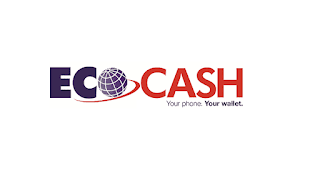ZESA is trending today (1 June 2020, Covid Lock-down) on Twitter, and for a good reason, it is very difficult to buy tokens today, just like the first of (almost) all months. I have personally never come across an explanation from ZETDC as to why this is always he case, but my kindergarten ICT tells me its because of the current system that the guys at ZESA use: the KWh are cheaper with the first purchase/s of each month up to a certain threshold, and the cost rises exponentially with each subsequent purchase, meaning its wiser to buy most of your electricity power needs near the beginning of each month (translating to the first of each month for most of us.
This means most people try and buy their ZESA on the first of each month, and clearly the ZETDC servers are failing to carter for the increased traffic, and I don't think there is a will to correct this situation because it has been ongoing for a very long time now.
I faced the same problem today when I wanted to buy my magetsi worth ZW$200RTGS (I hope that's how it's written). Ecocash was telling me my request was submitted for further review or something like that. My favorite application for buying ZESA and topping up most of my accounts, TopUp Zimbabwe (www.topup.co.zw) was even warning me before doing anything that ZESA servers were giving them too many errors and it might/would take up to 48 hours before the issue is resolved. I could tell the issue was big because ZETDC servers were failing to respond back to TopUp.co.zw with my account details after supplying the Meter Number.
I eventually managed to by me Token, and I will list a number of ways one can use to buy, try all the methods, and one should work for you:
1. Ecocash / One Money way
 This is the most accessible way to buy electricity as almost everyone is on the Ecocash platform, I don't know much about OneMoney as I have never used it. The steps for Ecocash USSD are as follows:
This is the most accessible way to buy electricity as almost everyone is on the Ecocash platform, I don't know much about OneMoney as I have never used it. The steps for Ecocash USSD are as follows:- Make sure your Ecocash Wallet is funded (obviously)
- Dial *151# and enter your Ecocash PIN on the prompt.
- Select Option 2. Make payment, and then Option -> 7. Regular Payments followed by -> 1. Pay ZESA then Choose option -> 1. Buy Token
- Enter the amount in RTGS you wish to buy the token for
- Enter the Meter Number.
- Follow all the prompts until you confirm your purchase and you will receive your ZESA Token as an SMS
This is one of the next to impossible ways to buy ZESA on the first of the month! You can also try using the Ecocash Android App.
2. Bank
 |
| NMB Bank advertising their essential payments servi |
3. Topup.co.zw (My personal favourite)
Topup.co.zw is my personal favorite because of the way it makes it easy to buy electricity tokens. A simple minimalist interface makes the use of this site a joy. Unfortunately, today I failed to buy using this method because ZESA servers were frustrating the process, but (if you have data) just visit topup.co.zw and try it, today or any other day.
 |
| Payment Convenience is what topup.co.zw is all about. |
4. Instapay
After I failed to buy using my favourite method, I then used Instapay. I have the InstaPay app installed on my Android phone, and you can too, just visit Google Playstore and install so you can easily use it the next time, but this time I used the web version, you get it here: https://instapayweb.vas.co.zw/ and its what worked for me today, and a few people I directed there also managed to buy their tokens quite easily. It works in a similar way to topup.co.zw, but I personally prefer the interface on TopUp compared to Instapay web version.
Go ahead, chose a method and let me know which method worked for you in the comments box, and also help with any other ways so we can all benefit.
5. Update 1: ZimPayments
I have also learnt of ZimPayments, and a lot of people seem to have success by using the service found on https://www.zimpayments.com/zetdc. I haven't used it personally, but you can still try it.
6. Ownai
Some people are also finding success using the Econet Owned Ownai which you can find here: https://cs.ownai.co.zw/zesa.php


